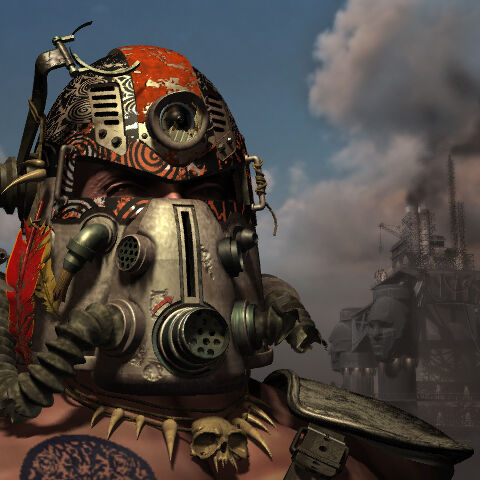Watching the drama around kagi unfold and it has me wondering how much you take into consideration a creator’s view on things like homophobia, sexism, racism, etc. when deciding to use a product. I think most of us have a bar somewhere (I would imagine very few on this website would ever consider registering on an altright platform), so where is that bar for you? What about art? Have you boycotted JKR or dropped your opinion about Picasso because they’re transphobic and misogynistic respectively? Is it about the general vibe of a product or piece of media, or are you more discerning? What goes into this decision and why?
Strongly, generally, although I also try to see who they are today versus who they might have been. It also depends on what they are saying and less on what somebody tells me they believe. For example, if someone doesn’t understand or is uncomfortable with a trans person but at the same time believes everybody should have the rights and ability to live life as they choose (basic tolerance, essentially), I don’t consider that transphobic specifically. Some people would though.
I avoid altogether, look for alternatives, or do my best not to support them financially at least. So I avoid anything written by Lunduke, I don’t avoid all of JKR because I like the franchise, but I get anything secondhand.
ever since kagi expressed that they’re not interested in caring about the effect of LLMs on the environment (https://kagifeedback.org/d/2425-would-love-to-see-a-blog-post-about-how-kagi-views-the-environmental-impact-of-ai-and-the-ethics-of-how-llms-are-trained/2), i had already hopped off because i could see their talk about “making the world a more humane place” was just talk. so i’m not really surprised to see this shit unfolding either
i’m surprised to see that the dude who replied on my post is actually the kagi guy, though. that’s surprising, i took him for some q&a support mod lmao
but yea i’m trans so i do my best not to support transphobic (or otherwise bigoted) people. seems like it’s in my best interest y’know. and sometimes i don’t know! i was pretty excited for kagi at first blush, it’s really a shame they’re not worth the time or effort
As much as I resent it being the way of things, money is power under capitalism. Where possible, I try not to cede mine to people looking to do nefarious things or disseminate shitty ideals. While I don’t have much personally and Kant was a pretentious douche canoe, I’m still idealistically partial to the universal maxim.
Yeah, no ethical consumption under capitalism or whatever but we can try not to prop up people who are brazenly making the world shittier. Thinking our actions don’t matter is how we get complacency.
Quite a bit as I’ve always found it difficult to separate the artist from the art.
I’ve never read any HP (it was “witchcraft” and “of the devil” when I was growing up in the bible belt lol), but all the stuff from JKR really doesn’t inspire me to give her any of my money, so I doubt I’ll be reading it just to see what all the fuss was about.
Even shows/books that I used to like, once I learn the author / actor / whatever is kind of a trash person, it just ruins the experience for me.
I read HP before her views came out. I still like the franchise, but get anything secondhand these days.
My.limit is where the utility provided is less than the annoyance I get from the creator. JKR is immensely annoying, far more than I enjoy their work so they will never see a dime out of me. Melon husk is a shit head and not entertaining so they don’t get my money or content and so on. But Google gets some data out of me since they don’t literally shitpost in my general direction about their opinions on people different from them.
If I know who the CEO is there is already a problem at the company level. If I care about who the CEO is, there is a MASSIVE issue for the company as I am many times more likely to make a decision based on who they hired rather than the quality of any product. The same goes for arts.
How much does a creator’s worldview influence whether you use their tech or consume their media?
Depending on what we call “worldview”… either 0%, or 100%.
In this particular case:
SearXNG
SearXNG is a free internet metasearch engine which aggregates results from more than 70 search services. Users are neither tracked nor profiled.
- OpenSource
- Free
- Self-hostable
- User configurable
Kagi
Kagi Inc. is a company […]
- Closed
- For profit
- Not verifiable, not controllable
- You pay for the privilege
Google, Bing, etc.
- Closed
- For profit
- Not verifiable, not controllable
- You don’t pay, you’re the product
How much does their respective owner’s worldview matter to me?
- Being open and verifiable: 100%
- Giving full control to the user: 100%
- Wanting to sell my tracking data: 0%
- Misrepresenting their intentions: 100%
- Having an unrelated opinion about politics, religion, human rights, or other: 0%
As for art, my opinion of the art doesn’t change whether I think the artist is a great or a horrible person; doing otherwise would be either dishonest… or imply the art can’t stand on by itself (I call that kind of art “trash”, no matter the author).
Certainly. There’s a big difference between me giving cash and uplifting someone who is actively harming people today, and supporting a dead man’s art.
Of course remember there’s nuance as well. It doesn’t cost me much to stop interacting with JKR’s output, but buying quality shoes that don’t in some way support sweatshop owners or fast fashion represents a significant time/money investment on my part.
And if there’s something important for my health than it goes right out. idk, maybe Dr. Scholl was there on Jan 6 and I was prescribed those Dr. Scholl’s foot goobers by a podiatrist, I’m not going to quibble too much.
Which ties in to the privilege of being socially conscious. It costs me nonzero money and energy that some might not have to do all of these things. I cannot blame or fault the person who works at Chick-fil-A paying rent, even if their work supports CFA.
I generally avoid giving meaningful contributions to chuds when possible. I was considering getting a Kagi subscription before, but upon seeing this that is no longer the case.
Have you boycotted JKR
I was never a Harry Potter fan to begin with, but if I were then I would be, yeah.
or dropped your opinion about Picasso
I don’t expect people who died centuries ago to be woke, so probably not. That someone like Picasso would be racist/sexist/queerphobic is a default assumption for me, so that already lowkey colors my perception of them when analyzing their work.
Is it about the general vibe of a product or piece of media, or are you more discerning? What goes into this decision and why?
It’s about applying pressure to provoke capitulation. I want to make clear to both them and everyone watching that being a dipshit in such a way will cost them resources and reputation. This is less effective when the creator is dead, though, so I’m not particularly concerned about their art.
You raise a really good perspective about the relevance of the artist among our culture. Older cultural influences have some significance but not the same as current artists in society. The relevance of problematic Greeks/Romans/Catholics just don’t have the same weight because we know they come from a different time and their art is a reflection of that time. If anything, it’s a sociological study of people from that time - we can still say the same for people today except for the fact that our consumption of their work can effect their estate.
Compared to current artists of today who are problematic - the likes of Roman Polanski, Chris Brown, Kevin Spacey, Johnathon Majors, Roald Dahl, these artists are much more in line with J.K.R. than someone like Picasso (or {insert problematic writer from 1850-1950}, because their works are more immediately relevant to our current culture. I also think the intent of consumption matters based on how it is then talked about - is someone is consuming the media to get an understanding of the cultural feelings at the time, something that highlights aspects of society, or are they trying to live vicariously through this character and thus perpetuating it.
As someone mentioned as well, second-hand is a way to still consume the media without directly supporting the artist. I don’t think consumption of media is inherently supportive of the ideology nor does it have to monetarily support them, though I do understand that there is a high likelihood of sharing thoughts about something leading to others possibly purchasing and supporting them.
What these conversations always come down to me is how effective is blacklisting an artist? As in, does consumption of problematic works inherently perpetuate those problematic ideas or is it able to be discussed while highlighting them? I myself am conflicted here, as one of my favorite movie has 2 problematic actors in it, but Baby Driver is so damn good and having it on my Plex server doesn’t actively support the problematic people (then, nor does it support the good workers). So it comes down to how willing or how able I am to separate the art from the artist, and how I choose to engage with said media when talking about it with others.
Someone mentioned Joss Whedon who is another great (or, awful rather) example where his actions make it harder to consume his media. But Buffy is still and always will be a classic, and The Avengers is still a big moment. Those also happen to have a lot more people than just him working on them. But the same could be said for Roman Polanski, but I am on the side of the user who said his works should effectively be dismissed. The only case for something to that extent would be for film and social studies in an academic setting where all of the knowledge surrounding it becomes part of the conversation - as an example akin to this I think it’s important to be aware of and study American Cinema. Unfortunately by nature American Comedy has deeply rooted racism ranging from creating stereotypes that still are perpetuated today, to poor treatment of actors. And yet it’s essential that we study these else we lack the historical contexts that led to change. I think the same will be said a few decades from now regarding Polanski, where we aren’t studying his work his actions but rather studying the changes in society as a result of them.
We can study without them, but we will miss important contexts that are important dynamics. Without knowing about how trains influenced filmography the impact of travel films like Thelma and Louise are less impactful than they could be. Without knowing about how awful sex scenes in film used to be, the impact of modern sex scenes led by Intimacy Coordinators can seem frivolous. Without knowing the history of blackslpoitation films contemporary ones (like Black Dynamite) made in its image may not have the same weight. They can be viewed and understood without that contextual knowledge, but the impact from viewing the media with the knowledge is very different. Which of course the whole discussion, is exactly what it’s like to consume media with someone problematic - exactly how able, or worthwhile, is separating the art from the artist? Does their intent even matter all that much if how it is consumed is completely antithetical to their position? If someone hateful has a work that everyone consumes and the socially perpetuated message is from love and kindness, does it matter if the artist is problematic? Or does their work become a slap in the face to themselves, so long as the consumers aren’t supportive of the artist but the positive message behind the work - as mentioned this could be as simple as buying the book second hand or pirating it. I don’t remotely have definitive answers to these, but I do think that the discussions surrounding problematic works can be more important than trying to sweep them under the rug in many cases. That of course also isn’t something that’s guaranteed. I’m also not trying to say that there is a definitive answer for any of these, moreso that it almost comes to be a case-by-case basis, per person.
I think it comes down to a mix of the intent of consumption, whether it’s perpetuating or highlighting, as well as the consumers worldview affecting their perspective - like how the movie Idiocracy is received across all demographics. You’d think the conservative mindset would write this movie off, but somehow there is a narrative that fits into their worldview that affects how they perceive and interact with the media.
I’m also not condoning any problematic artists. I grew up with Harry Potter but I haven’t interacted with the IP since the final movie (not the new series), and my interactions since have been through my Plex server, so no direct support. I was interested in the game as a concept and there are people that aren’t her who worked on it, but I’m also neither invested enough in the IP nor interested in supporting her - were I ever to try to play it I would pirate it outright, and I think it would mostly be so that I was able to have a full understanding of the game, its mechanics, seeing the specific problems as they’re presented in game. But that’s me consuming the media with this knowledge in mind, almost inherently creating a dialogue between myself, the property, and society. With that in mind, is my playing that game problematic? Some might still think so, others might think not. I think the same could be said for video games that get called “woke”, such as The Last of Us 2 being poorly received upon release - from an outsiders perspective many critiques were almost entirely comprised of misogyny. Any actual shortcomings of the game were eclipsed by things that just were not an issue, but some consumers decided it was. The reality for that game seems simple; people wanted more Joel and they didn’t get that. Our cultural shortcoming of respecting women have heavily affected any media that represents them, calling them things like Mary Sues or just using woke as a blanket term.
(cont) Finally, there are so many people and examples that I also don’t explicitly fault anyone for liking a problematic artists work, within reason. Someone can love the A-Team and have no idea Crazy Murdock is certifiably insane, or Dilbert strips etc. Consumption with ignorance isn’t ideal but it’s okay within reason. I also think that people can be allowed to have an exception. I don’t support deforestation for Palm Oil but I fucking love Nutella and I’m sorry but I won’t give that up as it’s been the one thing that has kept me going at times of despair. I’m allowed to have that and I can feel okay rationalizing it because of how I carry myself for other products, even if my consumption of it isn’t inherently ethical. Whether or not purchasing Nutella negates my convictions (like boycotting Nestle and trying to avoid non-sustainable practices) becomes irrelevant because it comes down to my happiness. I feel the same way for AI art for general consumers - I personally think that it’s people like little Timmy and overworked Jane who are just using Midjourney to make fun photos to make themselves happy. These are people who likely wouldn’t be commissioning art anyway, and their happiness is allowed to exist. For production of other things someone mentioned shoes as another example, which I personally try very hard to find ethical ones but in practice I always end up with PUMA’s because they fit my feet and have lasted longer. It’s something I wish I could change, but I’m stuck between values and blistered feet and buying another pair far more quickly than usual (just for this one example I bought shoes from Thousandfell and I had to get a new pair within 6 months from basic work wear) just to have to break them in again.
I think media from the perspective of ethical consumption is only a skipping stone away from corporate consumption, with the main difference being that the former you have a little more freedom of choice to decide with a much wider range of acceptability - is the author someone you want to support or do they just have an idea worth talking about, but you need to be informed first? Compared to which handbag/pair of shoes I should by because of how other people perceive my social status.
The former may have problematic elements but they can be discussed and support isn’t as outright. It’s more likely to highlight the issue, even if you’re consuming the work of someone problematic. The latter is a byproduct of societies problematic elements, it is hard to not perpetuate the issues unless you are specifically going out of your way to correct them, if you can buy second-hand or whatever else. Anyway, I realize I scoped this out a bit wider than the original question, but only because I think they are closely related, the main difference simply being that it’s not necessarily inherently ethical to consume a problematic artists works, while general consumption is just so difficult to avoid problematic business.
Picasso actually died in 1973, but yeah, still decades ago.
This actually reminds me of my favourite Pablo Picasso quote. (Note: I don’t really know anything about Picasso, so take that with a grain of salt)
In the New York Times in 1969 (https://timesmachine.nytimes.com/timesmachine/1969/07/21/90114401.html?pageNumber=6), when asked about the moon landing, he said “It means nothing to me. I have no opinion about it, and I don’t care”.
TIL. He’s a lot more recent than I thought.
I am a very “death of the artist” kind of guy, but I won’t give my money to people will will use it for evil. So while I’m perfectly happy to, say, buy a Roman Polanski movie secondhand, I’m not going to purchase a new copy.
When it comes to creative stuff (non-essential goods), I try to only support people with good conscience.
I have cut Netflix because of what the CEO has said. I have boycotted Ubisoft and Activision games because of the continued harassment issues in the company.
There are things I want to watch or play. But if this means supporting shitty people, I would instead prefer to use those resources to support the people I like. After all, its not like there are lack of entertainment in this world.
For essential goods (supermarket chains, goods made in less developed countries with labour issues, etc.), I am less strict because…well sometimes they are impossible to avoid.
I think it’s a little silly for anyone to grandstand on self-important moralistic consumption, because you can’t be a consumer of most things in the US without contributing to evil labor practices on some level.
Nearly everyone owns a computer or cell phone, and those are all produced with parts sourced unethically on some level or labor that is impoverished in a more remote or regressive part of the world.
And some artists are so incredibly good it’s impossible to ignore the quality even with their questionable morals, like Michael Jackson or Salvador Dali for example.
Everyone should make an effort to be mindful of their consumption, in my opinion, but I will always roll my eyes at people who are preachy about it.
Used to watch a lot of sailing channels. One popped up in my feed and I liked that they were essentially noobs, so they detailed their learning experience.
Then one day, they mentioned how they had homeschooled their kids back in Texas because something something trans people are evil.
Unsubbed and marked the channel “do not recommend” in SmartTube.
With some creators, I actively avoid knowing about them. My partner loves celeb gossip, and I don’t. They used to ask me things about my favorite musicians’ personal lives, and I always reminded them that I enjoy the music and I don’t want to know them. That’s harder to commit to these days.
Joss Whedon? I still love Firefly and Buffy and Dollhouse, but I’m pretty crushed that a hero of mine in the “strong female leads” department is such a POS to his actors.
I just finished a months-long movie marathon of our favorites, and we were saddened by how many of those movies are Miramax (Weinstein) productions. Sigh…
That’s a really hard question for me. It’s mostly a feeling more than a science so it becomes a bit hard to lay it down rationally and I know that doing that will result in weird inconsistencies but if I had to define it, it’s probably these three things.
- The influence of the author or vibe
I find myself thinking that if I associate a particular piece of art as the vision of a single person rather than a collective work, I tend to be more critical of that art or product. Rationally speaking, I know Kagi is made by more than one person and I know the same to be true of Brave but the fact that I strongly associate both to, in my view, very concrete people whose ideology is very clearly shown in the product, it becomes very hard for me to dissociate the product from supporting that person. Of course, if the vibe of the product or art is off, I just don’t want to indulge with it - it’s essentially an instant turn off. Sometimes it’s just a little thing but it lives rent free in my mind.
- The timeframe
If the person that has an influence is dead, well, I don’t have a feeling of contribution to something bad and I might overlook that dislike for the author.
- The need
If I don’t need it and I don’t vibe with the author, well, I won’t buy it. There’s better things out there. On the other hand, if I have no option but to use that product, I might swallow my pride.
It depends. People are allowed to have their own opinions as far as I’m concerned.
If their products are good, I see no reason why I shouldn’t use them. Even if I don’t agree with said opinion.
However, if they are actively making the world a shittier place for others, then I start to have a problem with them.
Like JKR not being pro-trans is just her opinion. And as far as I know, she hasn’t gone on a crusade against anyone yet.
But Blizzard encouraging the sexual harrasment of it’s female employees is a totally different beast. And I didnt feel right keeping supporting them.
But it’s a line everyone has ti figure out for themselves.
I get that it’s just an example and you weren’t up to date with her, but jkr is probably the worst example of someone who isn’t actively making the world a shittier place lmao.
Like JKR not being pro-trans is just her opinion. And as far as I know, she hasn’t gone on a crusade against anyone yet.
using a large public platform to disseminate the same kinds of anti-trans arguments currently being used by bigots to draft legislation putting trans people at risk is not just an opinion. like, it isn’t a crusade, but when there is a crusade going on and you’re saying the same thing the crusaders are saying, its not a good look.
I’m not really up to date on JKR to be honest. It was mostly an example of someone who was asked her opinion, gave it and it pissed people off enough for it to become an issue.
There’s a reason we shouldn’t look to celebrities for answers or anything other than the entertainment they supply.
It doesn’t effect my decision on what to buy or watch. Like I can’t buy chocolate or just basic groceries without supporting slavery so if some person is a massive asshole it would just be hypocritical to boycott them and not the million worse things that you are basically required to monetarily support just to survive.
I’d probably be more selective if I was rich but I don’t have the time or money to fuss about that.
So instead you do nothing? How is that remotely rational?
There’s nothing I can do unless I want to become a hunter gatherer. For example if I want to boycott companies that profit from and enable slavery I would need a lot of research time and more money just for basic groceries which I don’t have, that alone brings infinitely more harm to the world than watching content made by some asshat. It’s the phenomenon of no ethical consumption under capitalism.
I do things though as in I’m a member of a local anarchist group and we do political work for candidates that are willing to push our ideas. A lot of that is support for affordable locally sourced food and clothes as well as cooperative business models. I see that as having much more impact than any boycott which are usually useless.
It’s the phenomenon of no ethical consumption under capitalism.
I know that saying and in my experience it’s handwaving, lazy bullshit.
Let’s say your daily routine included buying a snuff film about shooting three people and buying groceries at a megacorp store that mistreats it’s employees. How would stopping to buy the snuff films not be a morally good thing even tho you continue shopping at that store? No one in their right mind would then say you are a hypocrite for not buying murder movies.
I’m not saying it’s not morally good, that’s not what no ethical consumption under capitalism means. It means there’s no way around doing infinitely more harm by living than the harm you do by watching any media.
Also the analogy works better if by buying groceries you are supporting the creation of like 1000 snuff films a minute but you sometimes watch a movie directed by a sexist asshole. Sure, you can stop watching the movies but morally it’s a drop in an ocean of wrong.
there’s no way around doing infinitely more harm by living
morally it’s a drop in an ocean of wrong.
Then why did you bother joining your co-ops? Why bother engaging with local political candidates? Why bother with locally-sourced food and clothing? Isn’t it just delusion to fight against an infinite foe?
I think the answer is that you don’t truly believe what you’re telling us. I think you pretend to be a Friedrich Nietzsche nihilist because that suits the aesthetics of anarchy, but deep down you’re a Victor Frankl nihilist. Just like the rest of us, you want to put one more drop in the bucket because whether or not it makes a difference to the cosmos, it makes a difference to you.
I wish cooperative businesses were common here and I would like to work for one which is why I’m in a group that advocates for them, it’s not a moral question, same with the other stuff. It also can and has had a real world effect(We helped push free public transit through) while consumer boycotts almost never do which is why morality doesn’t play a part in my buying decisions. I’d like to focus on things that can help more than just make me feel good.
Also nihilism is fucking retarded, I’m not sure why you are attributing that to me. It’s the 14y olds philosophy that just wants to be edgy.
Also nihilism is fucking [redacted], I’m not sure why you are attributing that to me.
To recap:
There’s nothing I can do unless I want to become a hunter gatherer. […] there’s no way around doing infinitely more harm by living […] morally it’s a drop in an ocean of wrong. […] it’s not a moral question, same with the other stuff
If you had just said that you don’t bother boycotting because your effort is currently being spent in more productive activities, then I would’ve given an upvote and left. But that’s not exactly what you said. You said that any attempt at improving society through personal morality (short of removing yourself from it) is pointless due to the scale of the harm society inflicts. Even if you didn’t mean it, that’s what you stated, so that’s the point I’ve been disagreeing with over here.
The stance that personal morality should have no place in the shaping of society (and that the common man’s fight to improve society is irrelevant and naive due to the scale of the ultimate victory of the strong over the weak) is a paraphrasing of Nietzsche’s disavowal of “slave morality.” The stance that a person should only advocate for things that help them personally is a paraphrasing of Nietzsche’s ideal of “master morality.” If you don’t want people associating you with that philosophy, you should be careful not to repeat it.













